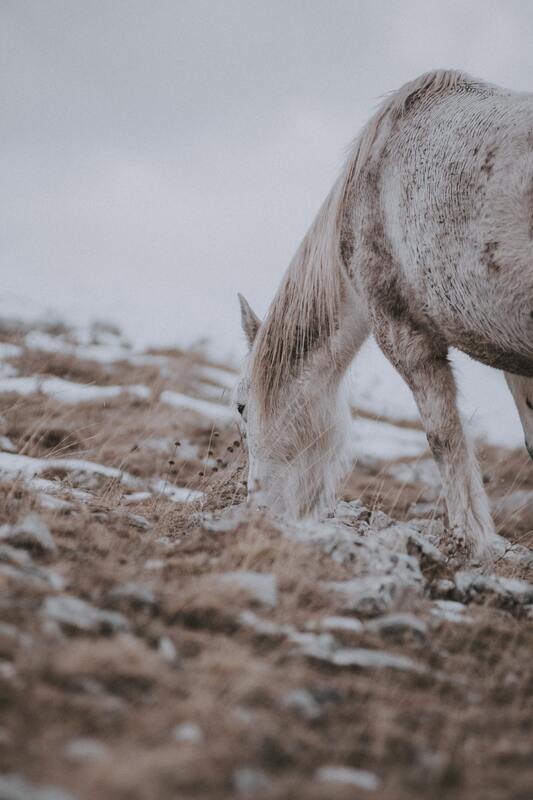|
Long ago a poor shepherd boy lived with his grandmother in a yurt (a felt tent), in the middle of the Mongolian steppes. Each day Suho rose early to help his grandmother prepare breakfast before going out to take care of their small flock of sheep. As he kept watch he sang, and his rich voice rose over the grassy plains, breaking the stillness of the day.
One night, when Suho did not return home at his usual time, his grandmother and the other shepherds worried that something terrible had happened. Yet before the next rising of the sun, Suho appeared, carrying a newborn foal in his arms. Beaming with happiness, he told them how he had found the little one too weak to stand, with no mother or master around to feed him. "I was afraid the wolves would eat him so I brought him home." Days went by and the colt grew strong and healthy under Suho's devoted care. The horse helped Suho look after the sheep, even staving off a bunch of wolves. Suho caressed the horse, rubbing him down, speaking to it as if it were his brother. "White horse, you fought well and bravely. The sheep are safe because of you. I will never forget you." As the years passed, Suho and the horse were inseparable. If his grandmother wanted Suho, she called to his horse. One day, news spread that the governor declared he would give the hand of his daughter to the man who won the big race. The shepherds of Suho's village urged him to enter, knowing Suho's horse was the finsest and fastest of all the horses. The day of the race, noblemen from all over the country came, riding fine horses, wearing silk clothing, but Suho paid them no mind. When the signal to begin was given, Suho and his white horse took off like the wind, easily winning the race. Yet when the governor saw that the winner was only a poor shepherd boy, he gave him three pieces of silver and told him to be on his way, without the white horse—for the governor had decided to keep him. Suho retorted, "I came to win a race, not to lose my horse." "Insolent beggar," shouted the governor. "You dare to answer me back? Guards, take him to the outskirts of the city and make sure he does not return." The guards rushed to obey their master's commands, leaving Suho beaten and bleeding at the edge of the city. He might have died there had not some shepherds nursed his wounds. Suho grieved the loss of his horse, his friend, his companion, but there was nothing he could do to get him back. Meanwhile, the governor decided to hold a great feast to show off his fine horse. When the time came, the horse, richly bridled and saddled, was brought in for the governor to ride. As his guests admired the impressive horse, the governor heaved himself into the saddle and lightly flicked his whip. The great horse bucked and reared, throwing the governor onto the ground. He neighed once and then galloped off on the steppes, swift as the wind. The governor shouted to his guards, "Go after him. Catch him if you can, but if you miss, shoot him with your arrows. Do not let him get away alive." The guards did as they were told but they could not catch him for the white horse ran too fast. Although they shot their arrows into his flanks, he kept galloping, leaving the guards in the dust. Late that evening, when Suho was intoning his nightly lament, mourning the loss of his horse, he heard a noise outside the yurt and went to look. There, panting, with blood gushing out of his wounds, Suho saw his friend. Gently, he removed the arrows and bathed the wounds but the horse grew weaker. Just before the sun rose, his beloved horse died. Shattered by grief, Suho lay sleepless night after night. He grew listless, forgetting to eat for days at a time. Then, one night, the white horse appeared to him in a dream, nuzzling Suho fondly. "Suho," said the horse in a soft voice, "you must not continue to mourn for me. Take my bones, hide, hair, and sinews and make them into an instrument to play upon when you sing. If you do this, I will remain with you forever. Suho woke and followed the instructions he had heard in his dream, fashioning an instrument from the bones, hide, hair, and sinews of his beloved horse, ornamented by the figure of the horse's head which he lovingly carved. Suho drew the bow across the strings as he sang about the joys of riding his beloved horse, his grief at losing him, his sorrow when the horse died. Always, he sensed the presence of his white horse. Others made horse-headed fiddles like the one Suho created. Even today, if you travel to the vast steppes of Mongolia, you will hear the songs created by Suho to honor the memory of his beloved friend, the white horse.
0 Comments
Leave a Reply. |
World TalesAge old stories of wit and wisdom from around the world. Tales retold by Nancy King. Archives
July 2024
Categories |
Copyright © Nancy King 2020 | Site Design by Angulo Marketing & Design
|
|
Nancy King is a widely published author and a professor emerita at the University of Delaware, where she has taught theater, drama, playwriting, creative writing, and multidisciplinary studies with an emphasis on world literature. She has published seven previous works of nonfiction and five novels. Her new memoir, Breaking the Silence, explores the power of stories in healing from trauma and abuse. Her career has emphasized the use of her own experience in being silenced to encourage students to find their voices and to express their thoughts, feelings, and experiences with authenticity, as a way to add meaning to their lives.
|


 RSS Feed
RSS Feed